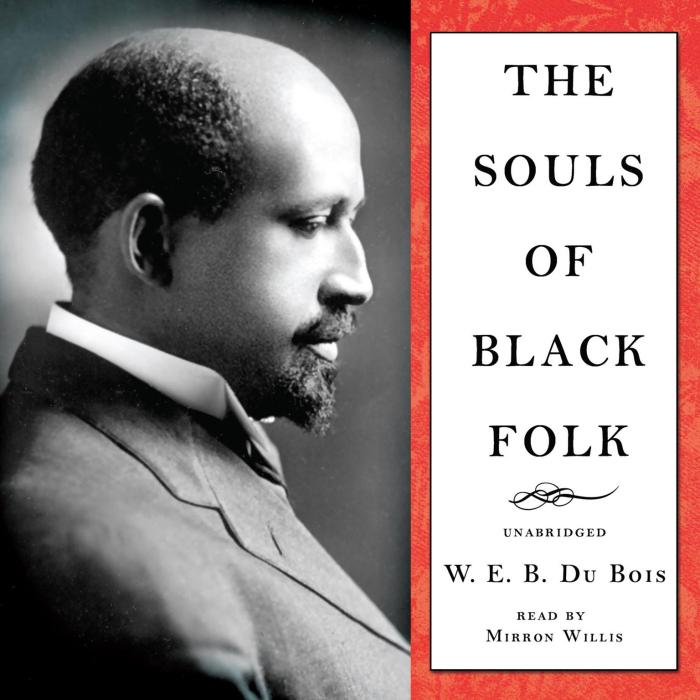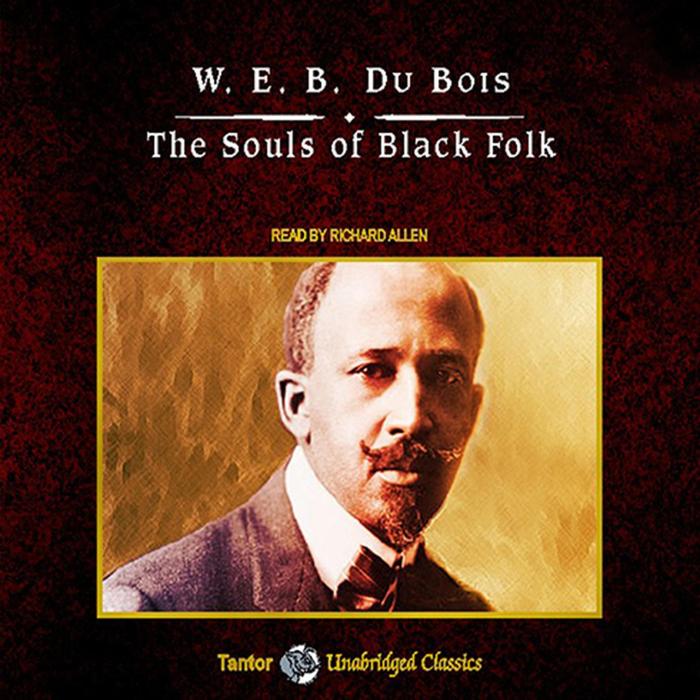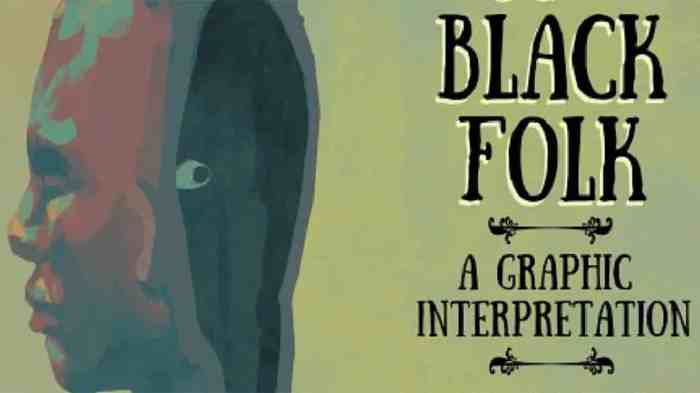Reconsidering the souls of black folk – W.E.B. Du Bois’s seminal work, “The Souls of Black Folk,” has left an indelible mark on American history and literature, offering a profound exploration of the complexities of race and identity. Through its poignant narratives, insightful analysis, and unwavering advocacy for equality, “The Souls of Black Folk” continues to resonate with readers today, inviting us to reconsider the ongoing struggles and triumphs of Black Americans.
Du Bois’s groundbreaking concept of “double consciousness,” the idea that African Americans navigate both their own identities and the perceptions of white society, remains a powerful framework for understanding the complexities of racial experience. His belief in the transformative power of education and the importance of the “Talented Tenth” to lead the fight for equality has shaped generations of activists and scholars.
Historical Context
W.E.B. Du Bois’s “The Souls of Black Folk” was a seminal work published in 1903 that profoundly shaped the intellectual and political landscape of the United States. It chronicled the experiences and struggles of African Americans during the tumultuous era of Reconstruction and the rise of Jim Crow segregation.
During the early 20th century, African Americans faced rampant racism and discrimination, which permeated all aspects of their lives. They were denied basic rights, including the right to vote, hold public office, and receive a quality education. Lynchings and other forms of violence were commonplace.
Du Bois’s Key Concepts
One of the central concepts in “The Souls of Black Folk” is “double consciousness,” a state of being in which African Americans constantly feel both a sense of belonging to the black community and a sense of alienation from white society.
Du Bois believed that race had a profound impact on individual and collective identity. He argued that the constant awareness of one’s race and the discrimination that came with it could lead to feelings of inferiority and self-hatred.
Du Bois’s ideas also influenced the development of Pan-Africanism, a movement that sought to unite African people around the world in the fight against colonialism and racism.
The Problem of the Color Line

Du Bois identified the “color line” as a fundamental barrier to progress for African Americans. He argued that racism and discrimination were not merely individual prejudices but rather systemic forces that permeated every aspect of American society.
To address racial inequality, Du Bois proposed a number of strategies, including the establishment of historically Black colleges and universities, the economic empowerment of African Americans, and the development of a strong black leadership class.
Education and Uplift
Education played a central role in Du Bois’s philosophy. He believed that education was the key to empowering African Americans and challenging racial stereotypes.
Du Bois worked tirelessly to establish and support historically Black colleges and universities, such as Atlanta University and Howard University. He believed that these institutions would provide African Americans with the knowledge and skills they needed to succeed in a racist society.
The Talented Tenth
Du Bois believed that the most talented and educated African Americans had a special responsibility to lead the fight for equality. He called this group the “Talented Tenth.”
Du Bois argued that the Talented Tenth should use their education and influence to advocate for the rights of all African Americans. He believed that by working together, they could overcome the challenges of racism and discrimination.
Religion and Spirituality

Religion played an important role in Du Bois’s life and work. He believed that religion could provide hope and empowerment to African Americans in the face of adversity.
Du Bois often used spiritual themes in his writings to convey his message of hope and uplift. He believed that the black church had a vital role to play in the struggle for racial equality.
Literary Legacy: Reconsidering The Souls Of Black Folk

“The Souls of Black Folk” is a powerful and enduring work of literature that continues to resonate with readers today. It is a complex and nuanced exploration of the experiences and struggles of African Americans in the early 20th century.
Du Bois’s use of language, symbolism, and narrative structure is masterful. He weaves together personal anecdotes, historical analysis, and philosophical reflections to create a work that is both moving and thought-provoking.
Questions Often Asked
What is the significance of “The Souls of Black Folk”?
It is a seminal work that explores the complexities of race and identity, providing a framework for understanding the experiences of African Americans.
What is Du Bois’s concept of “double consciousness”?
It is the idea that African Americans navigate both their own identities and the perceptions of white society.
How did Du Bois believe education could empower African Americans?
He believed that education was essential for challenging racial stereotypes and providing opportunities for advancement.
